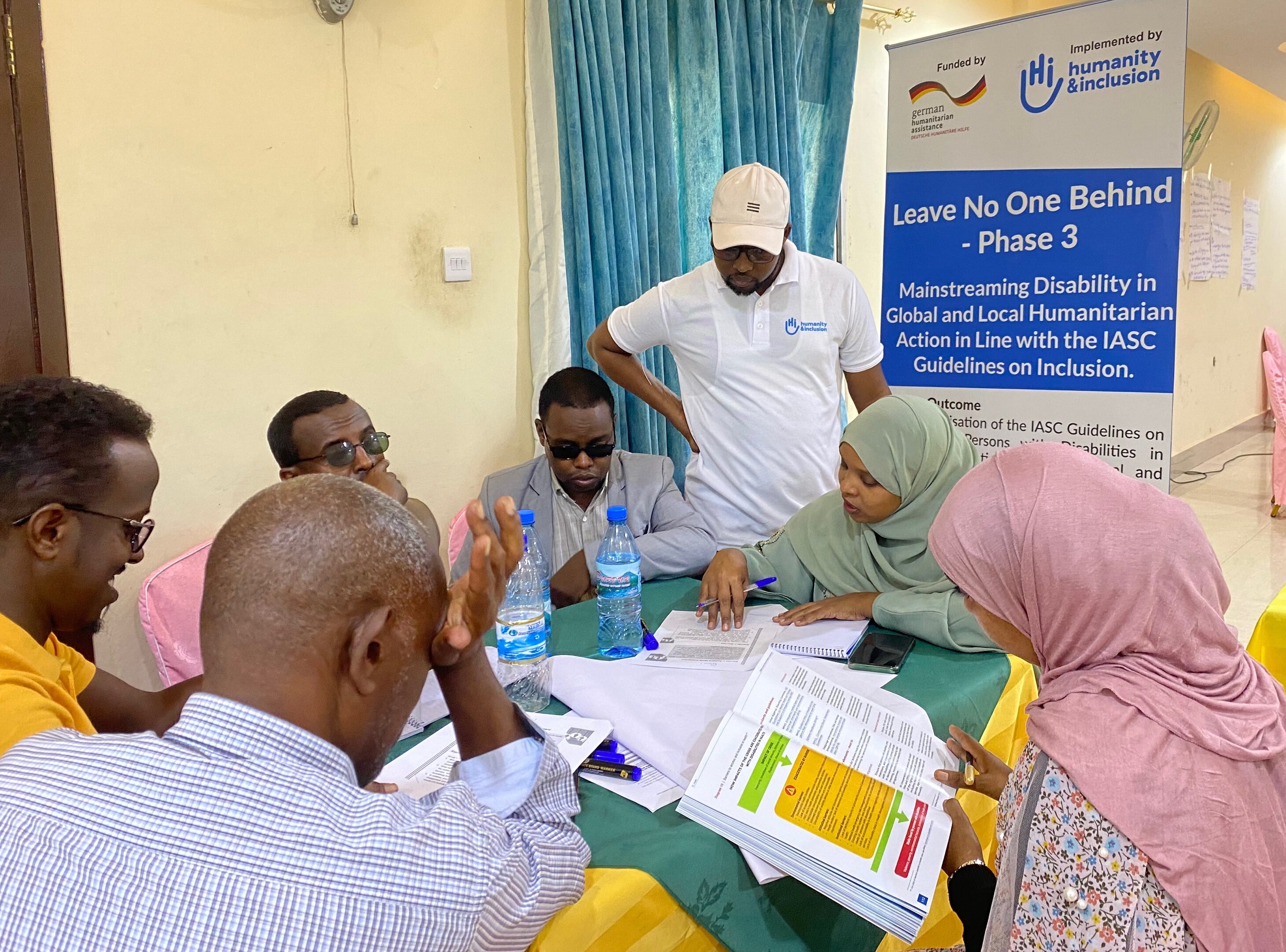
© Corentin Fohlen/HI
Somalia & Somaliland
Somalia and Somaliland are among our project countries in East Africa. The country activities are coordinated by HI.
Key Facts
As of 2025, Somalia continues to face one of the world’s most severe and complex humanitarian crises, driven by protracted conflict, recurrent climate shocks, and severe funding shortfalls. Nearly 6 million people require humanitarian assistance, with around 4.6 million facing acute food insecurity and 1.8 million children under five at risk of severe malnutrition. Ongoing violence and widespread displacement further compound the crisis. Seasonal floods and prolonged droughts have devastated livelihoods, while limited access to healthcare and reduced humanitarian funding have intensified needs.
According to the 2025 Somalia Humanitarian Needs and Response Plan (HNRP), an estimated 3 million people with disabilities face severe and intersecting barriers to accessing humanitarian assistance and participating in decision-making. Over 72% are unable to access humanitarian assistance due to physical inaccessibility, lack of information, and fear from physical or verbal attacks. They experience poorer health, limited education, and fewer economic opportunities, leading to ongoing marginalization. Displacement exacerbates their vulnerability due to the loss of mobility aids and support networks. Women and girls with disabilities are among the most at risk.
Disability-Inclusion in Somalia Humanitarian Response
Somalia and Somaliland have recently taken important steps to strengthen disability inclusion in humanitarian response. The establishment of the inter-agency Disability Inclusion Working Group (DIWG) in 2023 marked the first coordinated platform for mainstreaming disability inclusion across humanitarian system. Under the Phase 3-LNOB great progress was made, including capacity building of cluster-level disability focal points, increased engagement and leadership of OPDs, and the introduction of initial localized technical support mechanisms. These efforts resulted more inclusive Humanitarian Needs and Response Plans (HNRPs) and enhanced meaningful participation of persons with disabilities.
However, critical gaps remain. Local capacity to contribute to the Humanitarian Programme Cycle (HPC) and drive systemic change is still limited. Key sectors—such as WASH, Protection, Food Security, and Health—have expressed interest in strengthening disability inclusion but require uptake of IASC Guidelines, tailored toolsets, sustained guidance, and capacity support.
Project Location
The project will be implemented in South Central Somalia in Mogadishu, Banadir and Hargeisa, Gabiley, Arabsiyo in Somaliland where significant protection risks remain due to physical, communication and attitudinal barriers and lack of adequate consideration in humanitarian assistance.
Activities
In Somalia and Somaliland, the project aims to strengthen disability inclusion in humanitarian coordination by supporting local technical mechanisms and the Disability Inclusion Working Group. It will build capacity on data, HNRPs, and indicators, and forster peer learning through sharing lessons learned.
Activities also include sector-specific trainings (WASH, Health, Food Security), roll-out existing toolsets and guidance, translations into Somali, and workshops to to tailor tools to local contexts. The project also seeks to generate and share evidence on the participation of persons with disabilities in humanitarian action.
OPDs will be empowered through training, coaching, peer exchange, and technical support, and a small grants scheme will support them engage in coordination, implement activities, and mobilize resources.

© HI
Partners
HI has meaningfully engaged 12 major Organizations of Persons with Disabilities (OPDs) in establishing a disability inclusion technical support mechanism in Somalia and Somaliland. Cooperation will continue in Phase 4.
Key OPD partners include:
- Somali Disability Empowerment Network (SODEN),
- Somaliland National Disability Federation (SNDF),
- Diversity Action Network (DAN),
- UDHAN – Somali Youth Organization for the Visually Impaired,
- Jubaland Disability Organisation Network (JDON),
- Puntland Disability Organizations Network (PDON),
- Somalia Women Disability Empowerment Initiatives,
- Somali National Association of the Deaf (SONAD), and
- Disability Aid Foundation (DAF).
Updates from Project Country
There are currently no articles available.